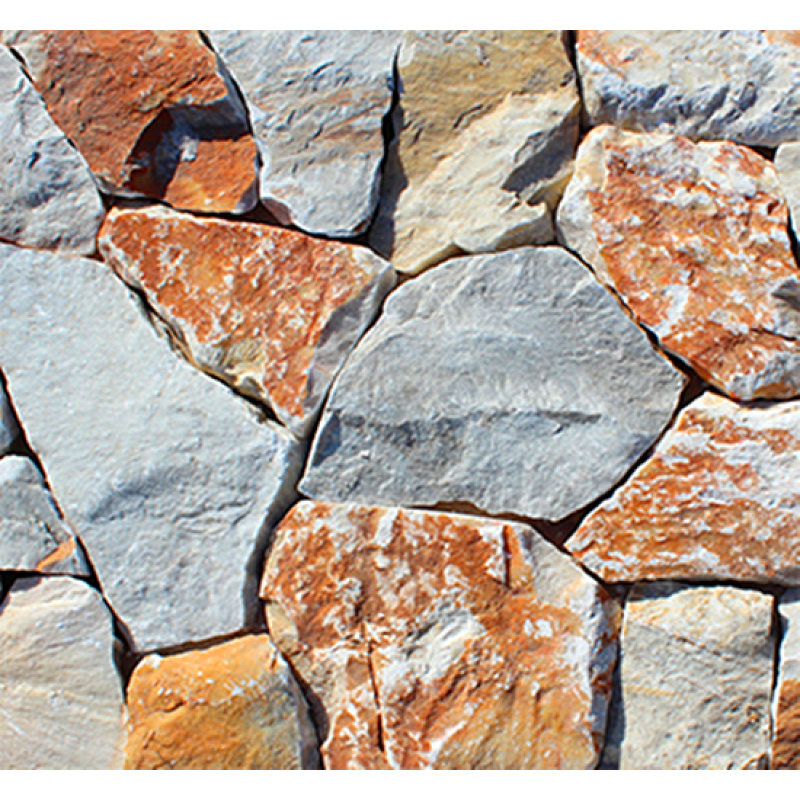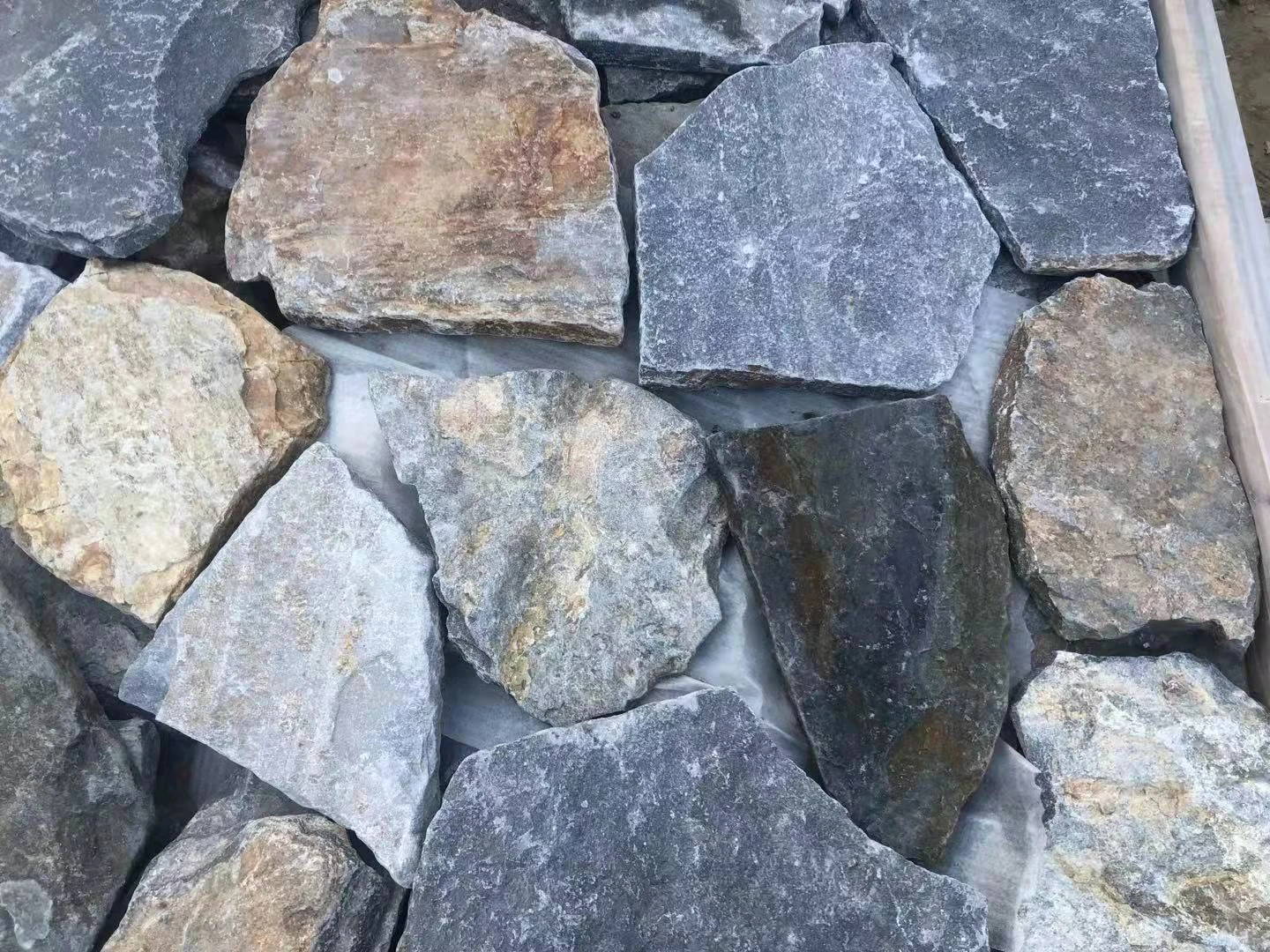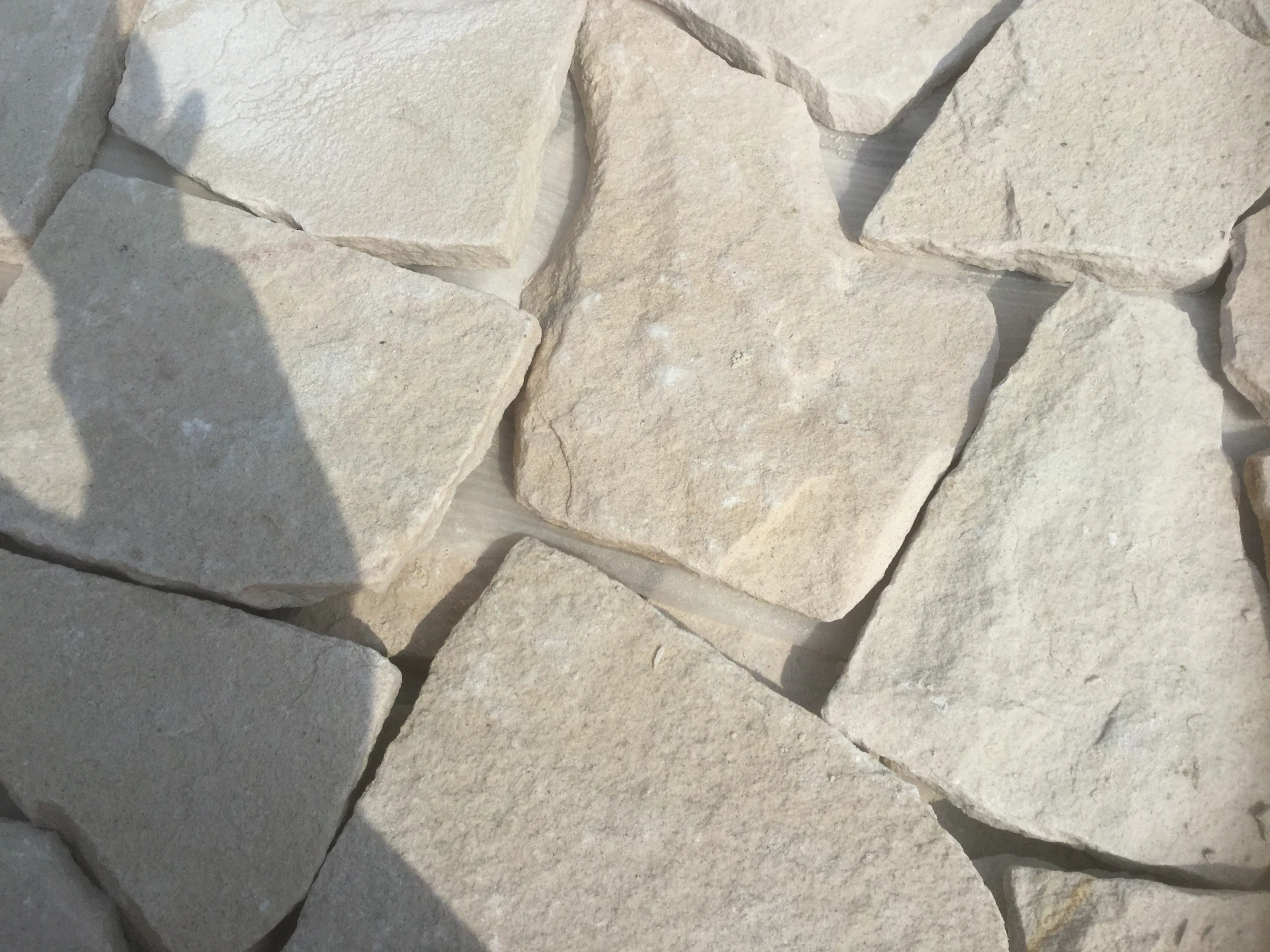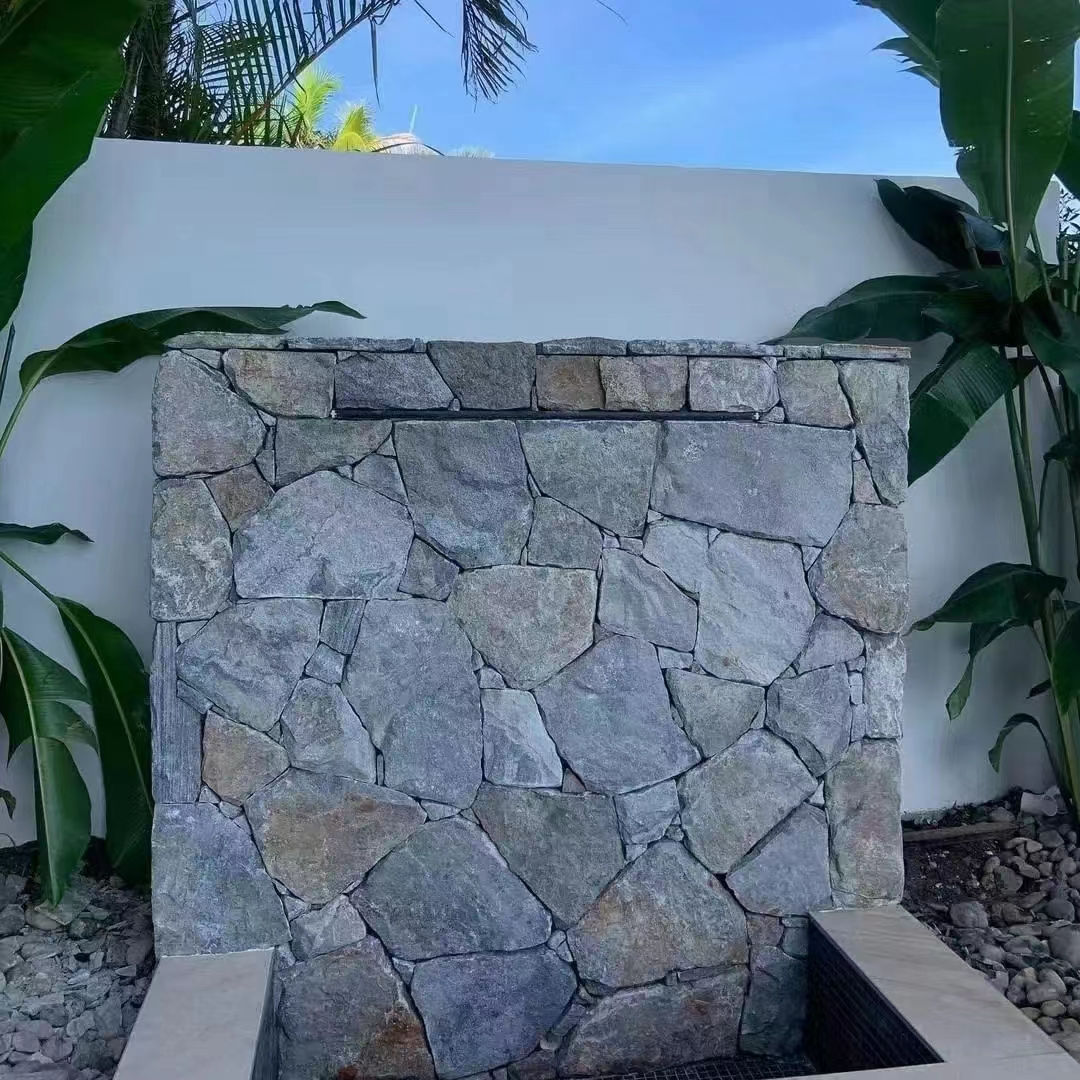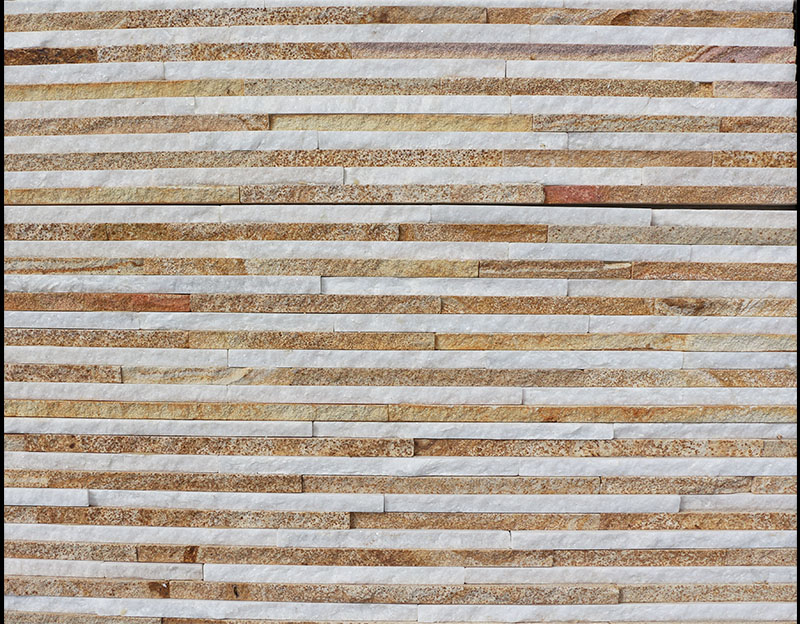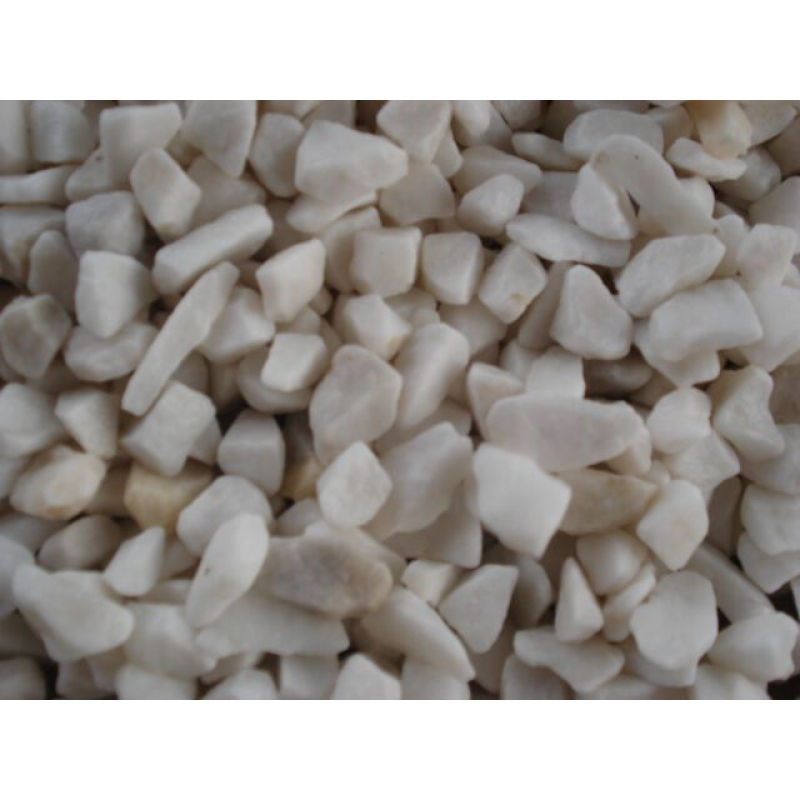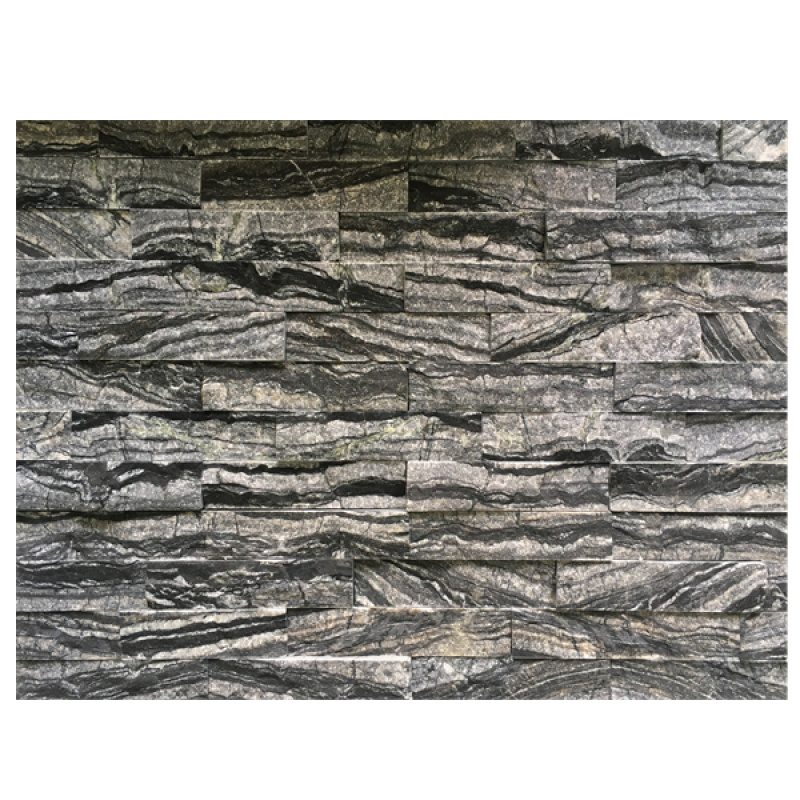WHAT IS MANUFACTURED STONE VENEER?
Manufactured Stone veneer, often referred to as manufactured stone, cultured stone, and architectural stone, is designed to replicate the look and feel of natural stone. To make stone veneer, manufacturers mix concrete with other additives, curing them in textured molds to look like natural stone. The cement provides stability, while the various additives provide lasting pigment. Generally, natural stone comes in two sizes: full blocks and veneer-style covers. When considering manufactured stone veneer vs. natural stone, the main difference is the weight. Natural stone is much heavier than manufactured stone veneer. Learn more about manufactured stone veneer here.
THE PROS AND CONS OF MANUFACTURED STONE VENEER
When comparing manufactured stone veneer vs. natural stone, note that natural stone comes from the earth, while MSV is an artificial material. Many builders choose manufactured stone for outdoor and interior projects, such as facades, fireplaces, and architectural details to add a natural element to their designs.
THE PROS OF MANUFACTURED STONE VENEER
Manufactured stone veneer can be produced in various shapes, profiles, and sizes. This allows for stone veneer styles that reflect unique regional character and current design trends. Likewise, manufactured stone veneer tends to be lighter and easier to handle and cut than natural stone. While you can cut through natural stone, veneers will give you far less trouble. Where natural stone can be hard to source, man-made products are more accessible.
Accessibility: MSV is generally less resource intensive. It requires less environmentally invasive sourcing methods and is oftentimes far more cost-effective to manufacture and install. Natural stone, on the other hand, has to be harvested . First, the machinery must be brought in to cut the good parts of the stone; then, the natural stone must be cleaned with harsh chemicals before it can be used in masonry applications.
Durabilidad: StoneWorks promises high-quality manufactured stone veneer with a 50-year warranty. Stone veneer is manufactured to withstand a wide range of temperatures following installation.
Versatilidad: MSV is ideal for indoor and outdoor vertical applications and can be installed in wet or dry areas. Stylistically, stone veneer also has a versatile aesthetic. Contractors can create anything from contemporary, sleek styles to rough, aged, rustic looks through a wide range of offerings.
THE CONS OF MANUFACTURED STONE VENEER
Generally, the disadvantages of MSV are due to poor installation or manufacturing. StoneWorks has a turnkey philosophy that brings out the most positive features of manufactured stone veneers without drawbacks. This solution is based on a simple premise: beautiful stone veneer, installed. Products with regionalized character and full installation services, our team guides customers through the entire process with competitive warranties for both product and installation.
Vulnerability to Chemicals: Manufactured stone veneer may be more vulnerable to exposure to various elements. For example, veneers are not always suitable for chlorinated pools because chlorine can cause color fading. Likewise, exposure to other harsh chemicals like de-icing salts, cleaning solvents and paint thinners can stain or scar the surface, causing discoloration.
Structural Capabilities: MSV is not usually designed for weight-bearing projects. It is a lightweight product and cannot bear the weight of natural stone. StoneWorks will never suggest manufactured stone veneer for weight-bearing walls. MSV should not serve as the primary structural element of a building; rather, it should be installed on walls that can support the load.


